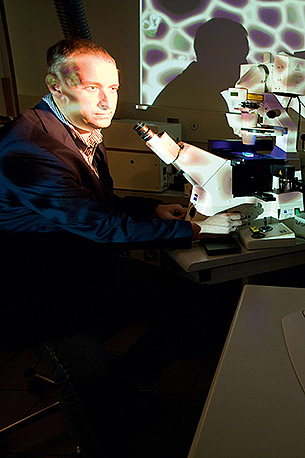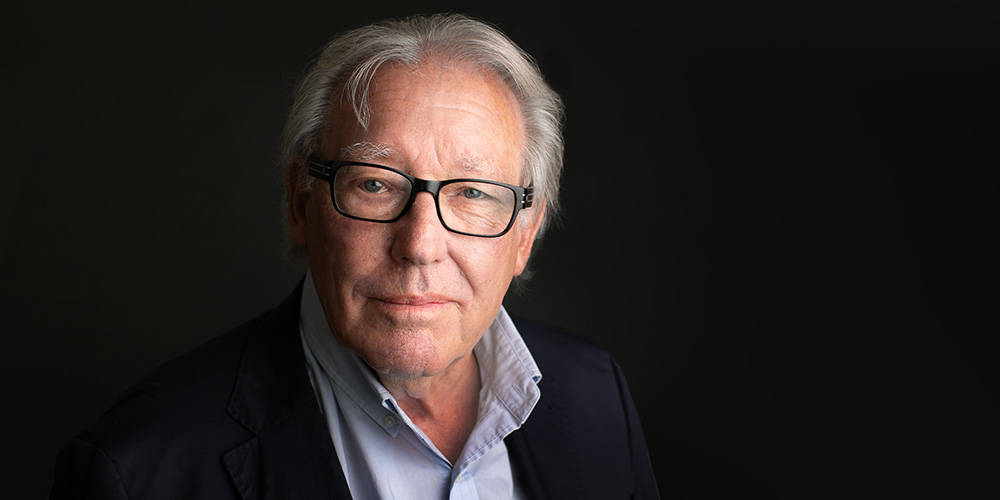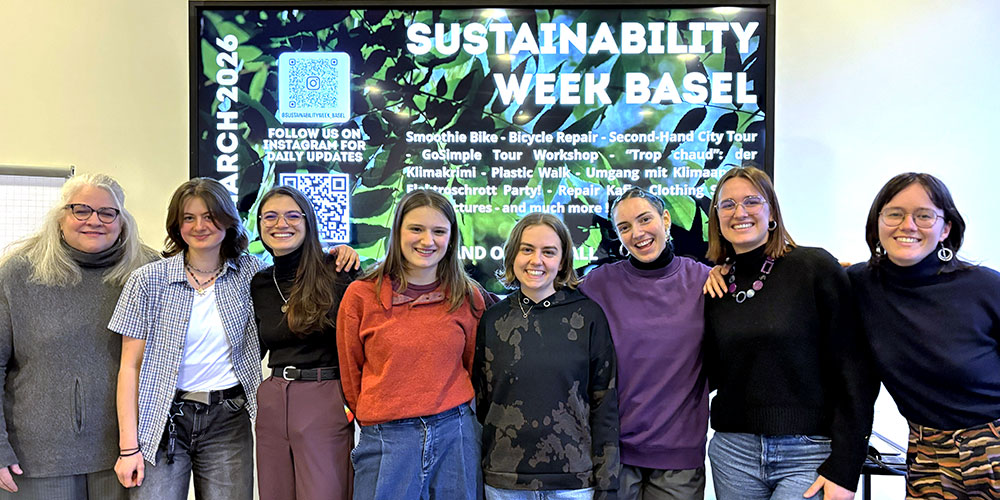Molecular Factories – A Combination of Nature and Chemistry
At the Swiss Nanoscience Institute (SNI), physicists, biologists, chemists and engineers work closely together. In interdisciplinary teams, they investigate very different research topics.
The team led by Wolfgang Meier, Professor of Physical Chemistry, is involved in research at the nanometer scale. Researchers from his group are working, for example, on the development of tiny molecular factories that successfully mimic nature. To do this, the scientists package artificial organelles in micrometer-sized natural vesicles produced by cells. Even after injection into a living organism, the vesicles remain intact, fulfill their function and exhibit no toxicity.
Natural cells are the factories of biology and the molecules of life are assembled within them. The production sites are small chambers called organelles, in and between which a great variety of chemical reactions take place. For medical applications, it would be ideal if molecular cell-like factories could be used – for example to produce missing or needed molecules and drugs within an organism.
Biosynthetic vesicles
To develop such molecular factories, the researchers first produce artificial organelles – these artificial organelles contain enzymes, which are enclosed by a membrane. Specific proteins in this membrane proteins function like doors and allow the molecules necessary for the enzymatic reaction to enter and leave the organelle.
When cultured cells are «fed» with such artificial organelles, they produce natural vesicles in micrometer size after stimulation. These vesicles have a natural cell membrane that traps the artificial organelles – thus functioning as a molecular factory.
Inside a molecular factory, multiple components can be produced and assembled into the final product. The biosynthetic vesicles can also transfer components from one cell to another. Different molecular factories can be combined to create more complex structures with high functionality – a first step toward producing artificial cells in the laboratory or in living organisms.
First experiments with Zebrafish embryos have shown that the molecular factories work as designed in a living organism and do not affect the vitality of the embryo.
The University of Basel mourns the loss of Prof. Dr. Wolfgang Meier who passed away in the presence of his family on January 25, 2022 after a long illness. Wolfgang Meier was the founding director of the NCCR MSE and will be remembered as an outstanding creative scientist with a very gentle and perceptive personality.



